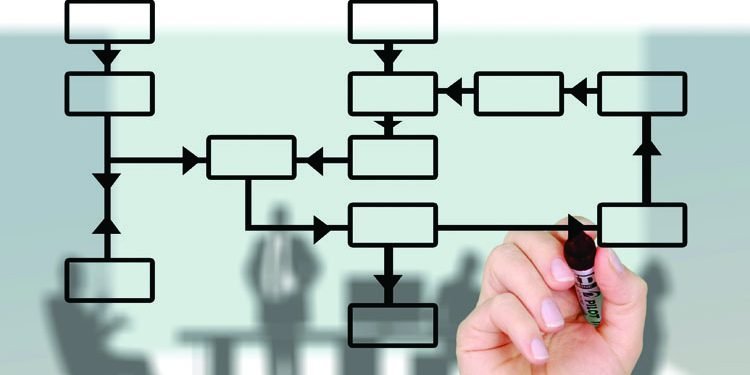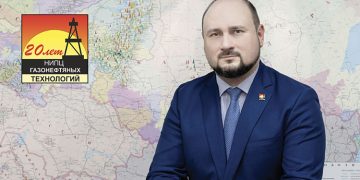Safety First: Market Developments and Changes within Well Control Training in Russia
In 2015, at a meeting of the Presidential Commission for Strategic Development of the Fuel and Energy Complex and Environmental Safety, a resolution was adopted regarding the creation of a national system for professional training on «Well Control. Managing a Well with Oil, Gas and Water Shows». With the view to implement the resolution, a non-commercial organization “The National Association for Well Control” (NAWC) was established with active participation from the Gubkin Oil and Gas University. An Expert Council was formed within the structure of the NAWC. The Council has made great strides in the development of standards and procedures of the NAWC. The procedures for accrediting training centers and implementing learning process were elaborated and expanded upon. Training of «pilot» groups was carried out, and the first candidates who had passed their exams received their certificates.
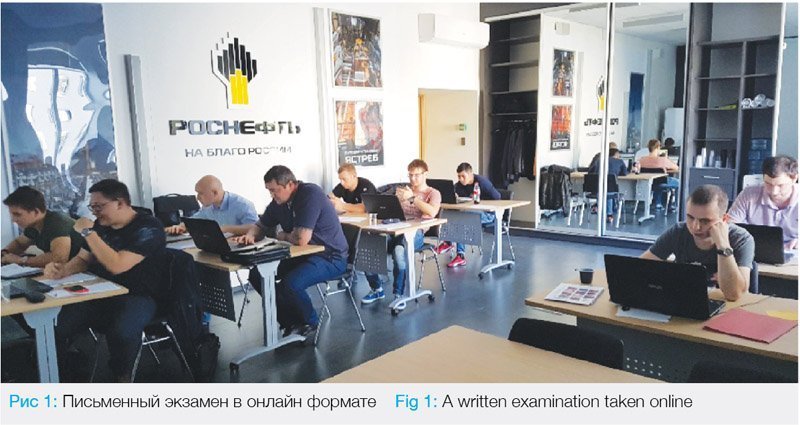
More Than Just Public Accreditation
To date, the Federal Law N 273-ФЗ “About Education in the Russian Federation» makes provisions for public accreditation and professional-public accreditation. The essence of such types of accreditation lies in the inspecting organizations providing educational services to verify their meeting specified criteria. In case an organization reaches the criteria, it obtains its accreditation for a definite period of time, in the course of which no control is usually exercised on the part of the accrediting organization, pertaining to the requirements of the accreditation. Moreover, it never comes to suspension or deprivation of the accreditation.
The National Association for Well Control has been systematically developing this issue, not only setting the criteria for accreditation but continuously tracking their implementation, as well as following all the changes that may be taking place during implementation of training programs in those accredited organizations. Such as changes in the contents of a program, in the logistics, in teaching staff. What’s more, the certification of students is also carried out by the members of the NAWC without participation of teaching personnel from the educational institutions which rules out any possibility of subjective evaluation of the students’ knowledge.
It should also be mentioned that most courses are presently paid to the centers who run the programs for training for Bachelor’s, Specialist’s, and Master’s Degrees, within the structure of higher education, while the accreditation of programs for supplementary professional education is carried out less actively.
To carry out the accreditation on such a specific subject as “Well Control” a commission should consist of the members having certain work experience in that sphere. The National Association for Well Control invites into the accreditation commission only those experts who have work experience in the field of well control.
Matching Demands of the Russian Oil and Gas Complex
It is possible to receive the training on the program “Well Control. Well Management under Oil, Gas and Water Shows” in a great number of educational institutions today, including some online courses. The quality of training, remains to the discretion of educational centers themselves. Therefore, many oil and gas companies, having higher corporate standards of safety, request their contractors to have their personnel certified on IWCF and IADC. This is mainly due to the influence of the managers and specialists having operational experience in the Western companies. However, taking the scale of the entire oil and gas sector of Russia, such certificates from the IWCF and IADC are only held by no more than 10% of all employees. The number of centers having correspondent accreditations is less than 10 throughout the country (not counting any temporary or permanently established branches). And the accreditation process itself is pretty difficult. To accredit a new center, not only serious investments are needed into its logistical support, but training of the personnel is required at corresponding courses abroad. It often happens so that even high-class specialists in the field of well control who have extensive work experience are not able to get accredited, as to obtain an accreditation one has to know the standards of API and the English language. And the experiences, taught according to the IWCF standard, often differ from the Russian business environment. The simplest example of this is selecting a well shut-in method.
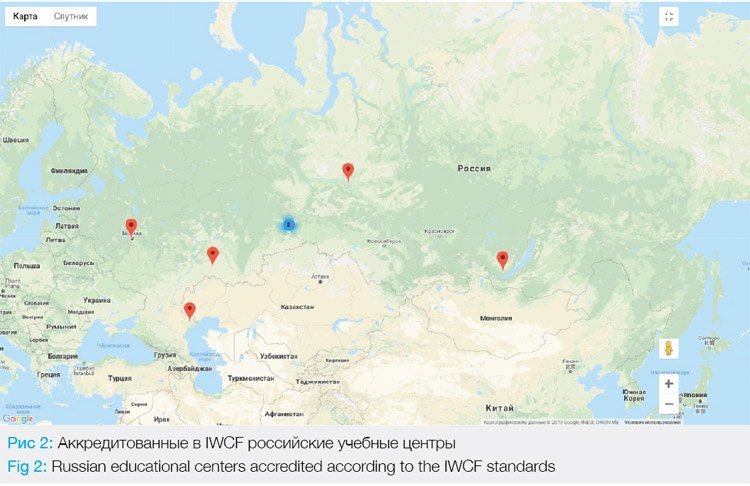
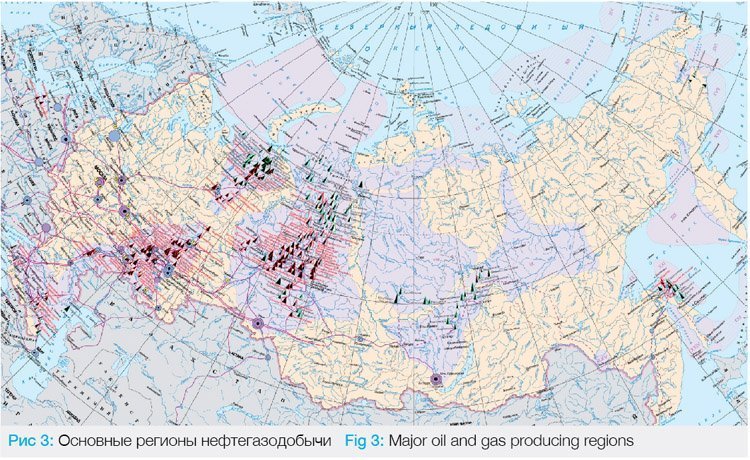
High overhead expenses and limited number of the educational centers having the international accreditation are among the main causes of the high cost of such programs. And due to high cost of the training, not every employee involved in operations at oil and gas wells can receive it. On the other hand, a reduction of training expense would inevitably result in the lower quality of training. In that case, you would need more objective grading on the exams and more thorough verification of student’s identity. In this context, the IWCF and IADC apply significant efforts but those are not sufficient for the Russian business environment and take little account of the Russian mindset.
Besides, the sanctions applied to Russia over the last three years have only expanded. The head office of IWCF is based in Scotland, while that of IADC – in Houston, USA. Restrictions have been already imposed on the citizens of RF participating in the offshore projects with the water depth over 152 meters (500 feet), and on those working in the Arctic Circle, or developing shale plays. They are not allowed to receive the certificates of IWCF. That said, the training on the international standards can be also discontinued at any moment, as it already happened in the end of 2014 and the beginning of 2015.
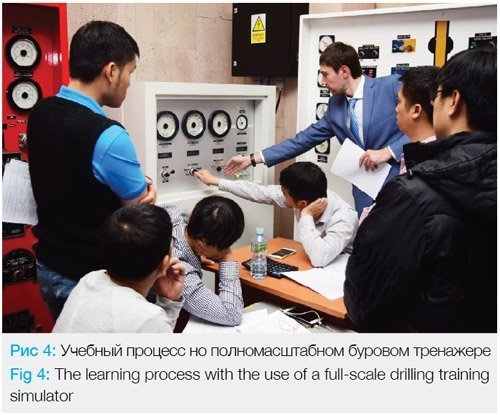
Training Should Yield Concrete Results
According to clause 97 of the Federal Rules and Regulations in the area of industrial safety, namely, “The Regulations for Safety in the Oil and Gas Industry”, adopted by the Order of the Federal Service of Ecological, Technical and Nuclear Surveillance (Rostechnadzor) #101, issued on the 12th of March, 2013, all employees carrying out direct management and implementation of operations in drilling, development, workover and reconstruction of wells, as well as carrying out well related geophysical and blasting-and-shooting operations, are obliged to, once per 2 years, take and pass the exam on the subject of “Well Control”. However, no requirements to the contents of the training course program have been given. The factors that have to be considered, when dealing with various stages of a well life cycle, differ significantly. Besides, various tools are used when working with the surface and subsea BOP equipment, the peculiarities of which should be also taken into account. The implementation of the above mentioned operations involves employees with various duties, from the auxiliary and executive personnel up to foremen. The responsibilities of a person dealing with well control shall also be dependent on his/her position. The National Association for Well Control offers the accreditation for the following supplementary training programs:
• Well Control. Managing a Well with Oil, Gas and Water Shows.
• Well Control. Managing a Well with Workover Operations.
• Well Control. Managing a Well Having Service Operations with the Use of Coil Tubing.
• Well Control Managing a Well with Service Operations Using Wire Line Equipment.
Each of the training programs has 4 levels: from the auxiliary personnel up to the supervisors and foremen: and each includes two or one type of BOP equipment: surface equipment or the surface and subsea equipment. In total we get 32 training programs taking into account of who shall perform the operations, and at which specific well he shall do that.
Enhanced Safety Level is a Major Priority
In general, the bulk part of the customers for training on international standards can be divided into 2 groups. The first group comprises the companies looking to enhance the safety level of their facilities. There are even those who organize the training of their employees on a yearly basis in spite of the fact that the certificate is valid for 2 years. The second group includes the companies that need the certificates formally, mainly, to be able to participate in tenders. The Customers referred to the second group just care to receive the certificate with the minimum of costs, since the costs of training increase the expenditures related to performing operations according to a given tender. To win a tender, the customers of the second group would minimize their expenses, economizing on everything, which includes their personnel as well; they hire the employees who are practically unable to pass the exams by themselves. Training of such staff comes to mechanical coaching for solution of standard tasks which maximally approximate those expected on the exams, without teaching them to understand the physics of processes taking place inside a well. It is worth of noting that, indeed, there is a small part of questions, the answers to which would be simply memorized. Those are some questions related to the API standards and peculiarities of operation of BOP equipment produced in Western countries.
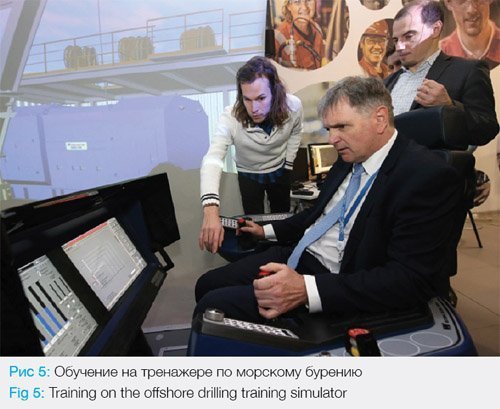
As a result of this, they would put up for a tender a minimal price bid, would win that tender and would invite to the work on their facility the personnel who just formally match the specified criteria. Such customers do not care who, where and how their training would be conducted. The main thing for them is to receive the certificates! The training centers, in their turn, to win a tender for training, would be forced to cut down their prices. And this, as was mentioned above, would inevitably result in the degradation of the training quality. At present, the business customers of training services issue tenders for training of their employees within 1 to 2 years. If we take into account that all payments to IWCF and IADC are supposed to be in foreign currency, while the tender price is fixed in rubles for a period of 1 to 2 years, training centers risk their profit because of continuous fluctuations of the ruble exchange rate. Besides, the amount of payments only grows from year to year.
We all remember the Deepwater Horizon disaster that took place in the Mexican Gulf in 2010. There is no doubt that the personnel who operated that platform were trained for managing that well. For certain, all of them had their certificates. (**They had received safety awards and one key member of staff was out on a training course the day the accident happened). However, this could not yet prevent that awful disaster. One should understand that safety must, above all, be the key focus when technically complex projects are being implemented. It is necessary to train personnel for operating under conditions that are complex not just technically but psychologically as well, under the conditions of emotional stress, missing or excessive information, rigid limitations of time; they should be able to search and find the real causes of processes taking place inside their well and ways to maintain control over the well in any situation.
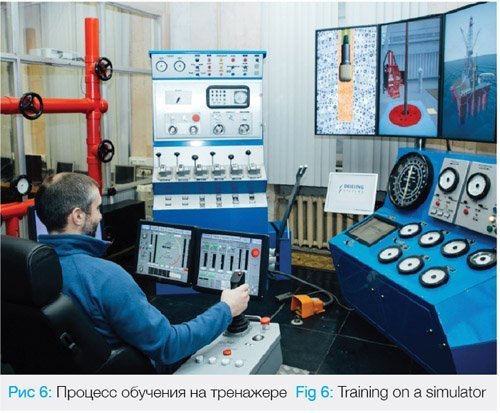
The National Association for Well Control looks forward to cooperation with oil and gas companies, who by means of their representatives in the NAWC, could participate in development of training programs, teaching methods, contents of training courses. All the companies have very strict rules of control over disclosure of information related to their operations. However, as the safety issue is concerned, it is necessary to share information to prevent recurrence of such situations at any other facilities. In the long run, all participants would only win from this.
NAWC is today a platform which consolidates the efforts of Rostechnadzor, oil and gas companies, drilling and service companies, aimed at enhancement of the quality of training for employees of any level on the subject “Well Control. Managing a Well with Oil, Gas and Water Shows”, which would lead to enhanced level of industrial safety in the oil and gas complex.
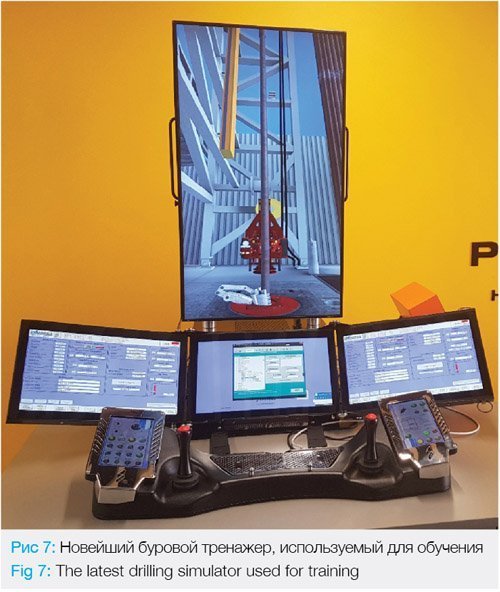
Training Centers in the Process of Their Accreditation
Training according to the standard of NACW can now be received in the Gubkin Oil and Gas University. In addition, several other training centers are in the process of receiving their accreditation. The Gubkin University offers training on the most advanced training simulators by Drilling Systems. Students recognize the high quality of training and a considerably higher degree of applicability of the gained knowledge for every day work, and higher preparedness to emergency situations.
A.S.Oganov, S.O.Borozdin

